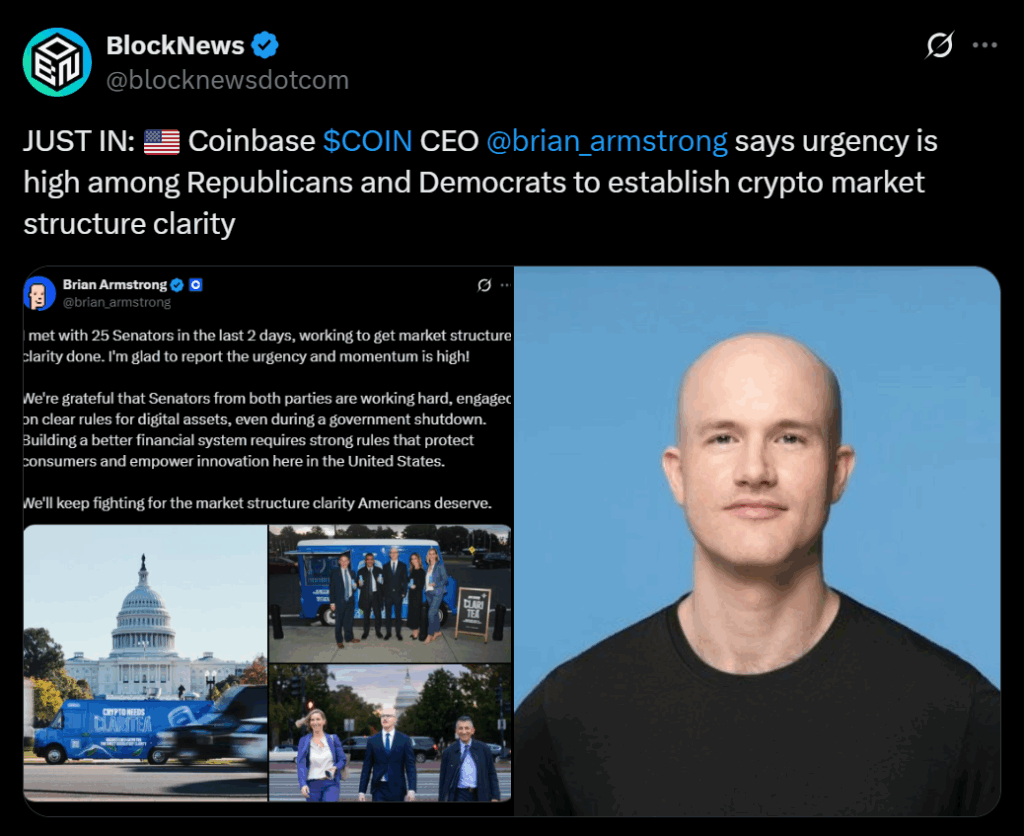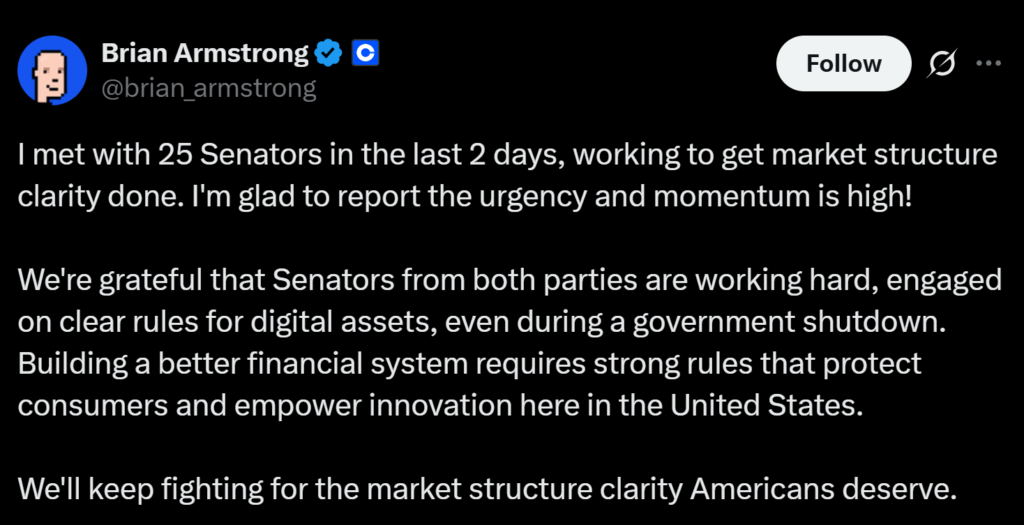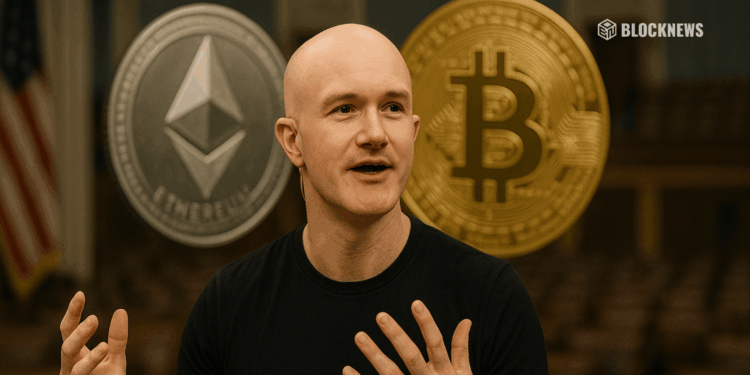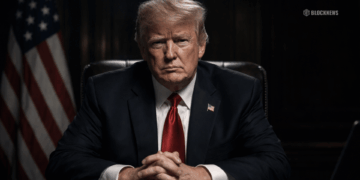• Brian Armstrong says Congress is 90% finished with a bipartisan U.S. crypto bill.
• Senate meetings this week marked a shift from hearings to actual negotiations.
• Lawmakers are aiming to move a finalized framework by Thanksgiving, giving the industry its clearest path to regulation yet
Coinbase CEO Brian Armstrong says the push for U.S. crypto regulation has never been stronger. After meeting with more than two dozen senators and White House officials this week, Armstrong described “urgency on both the Republican and Democrat side” to finalize a market-structure bill. According to him, negotiators are roughly 90% finished with a bipartisan framework, with the remaining issues centering on DeFi and consumer protections. The momentum, he said, is the most promising he’s ever seen.

From Debate to Deal-Making
The past week marked a clear shift in tone on Capitol Hill. Senate Democrats hosted a crypto CEO roundtable, and Senate Republicans quickly scheduled their own follow-up — a rare back-to-back series of bipartisan meetings. Armstrong and other industry leaders spent hours working through the finer details of exchange regulation, stablecoin oversight, and the SEC/CFTC divide. This move toward hands-on collaboration signals that lawmakers are no longer debating if to regulate crypto, but how to do it.
Why It Matters for Crypto Builders
A finalized market-structure bill could finally replace the messy patchwork of lawsuits and state-by-state rules with clear federal guidelines. For crypto exchanges, that means less uncertainty. For developers and DeFi projects, it could unlock innovation without the constant fear of enforcement. Armstrong believes that bipartisan staffers are aligned on core architecture — such as custody and asset classification — and that leadership could move a bill out of committee around Thanksgiving if talks stay on track.

The Road Ahead
The next step is a GOP-led meeting with crypto firms, followed by a potential markup if leadership approves. Key details to watch include how the bill defines digital commodities, how centralized exchanges are licensed, and how front-end DeFi interfaces are treated. While a prolonged government shutdown could cause delays, both parties now seem committed to finishing the job. As Armstrong put it, the conversation has moved from “if” to “how fast.” That’s the strongest signal yet that real U.S. crypto legislation might finally be within reach.














